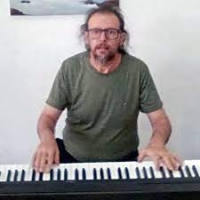Violin Sheet Music
 "Music is the vernacular of the human soul." Geoffrey Latham
"Music is the vernacular of the human soul." Geoffrey Latham
Traditional

traditional music
Shostakovich

Dmitri Dmitriyevich Shostakovich (25 September 1906 – 9 August 1975) was a Soviet Russian composer and one of the most celebrated composers of the 20th century.
Shostakovich achieved fame in the Soviet Union under the patronage of Leon Trotsky's chief of staff Mikhail Tukhachevsky, but later had a complex and difficult relationship with the Stalinist bureaucracy. In 1936, the government, most probably under orders from Stalin, harshly criticized his opera Lady Macbeth of the Mtsensk District, causing him to withdraw the Fourth Symphony during its rehearsal stages. Shostakovich's music was officially denounced twice, in 1936 and 1948, and was periodically banned. Nevertheless, he also received accolades and state awards and served in the Supreme Soviet of the RSFSR. Despite the official controversy, his works were popular and well received.
Shostakovich achieved fame in the Soviet Union under the patronage of Leon Trotsky's chief of staff Mikhail Tukhachevsky, but later had a complex and difficult relationship with the Stalinist bureaucracy. In 1936, the government, most probably under orders from Stalin, harshly criticized his opera Lady Macbeth of the Mtsensk District, causing him to withdraw the Fourth Symphony during its rehearsal stages. Shostakovich's music was officially denounced twice, in 1936 and 1948, and was periodically banned. Nevertheless, he also received accolades and state awards and served in the Supreme Soviet of the RSFSR. Despite the official controversy, his works were popular and well received.
Alexander Rybak
Alexander Igorevich Rybak (Russian: Александр Игоревич Рыбак) or Alyaxandr Iharavich Rybak (Belarusian: Аляксандр Ігаравіч Рыбак; born 13 May 1986), is a Belarusian-Norwegian singer-composer, violinist, pianist and actor.[1
juan marcos abrodos
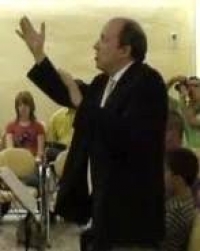
juan marcos abrodos Born in Mexico City, in 1979, Antonio Juan Marcos started his musical training playing classical guitar and later studied composition with Osvaldo Golijov .
Charles Dancla
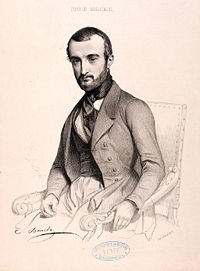
Jean Baptiste Charles Dancla (19 December 1817 in Bagnères-de-Bigorre – 10 October 1907 in Tunis) was a French violinist and composer.
When Dancla was nine years old the violinist Pierre Rode in Bordeaux heard his music; he was so impressed that he sent a recommendation letter to Pierre Baillot, Luigi Cherubini and Rodolphe Kreutzer. Thus Dancla became pupil to Paris conservatoires with Baillot for violin and with the opera composer Fromental Halévy for composition. He was strongly shaped by Niccolò Paganini, who experienced him in 1830, as well as by Henri Vieuxtemps. From 1835 onward Dancla was solo violinist in that Paris opera, and shortly thereafter he became concert master. In the year 1857 he was made a Professor to Paris conservatoires, where he was a successful teacher for over 35 years.
His two brothers were Arnaud Dancla (1819-1862), Cellist and author of a considerable cello teaching method, and Leopold Dancla (1822-1895), Violinist and composer of chamber music.
When Dancla was nine years old the violinist Pierre Rode in Bordeaux heard his music; he was so impressed that he sent a recommendation letter to Pierre Baillot, Luigi Cherubini and Rodolphe Kreutzer. Thus Dancla became pupil to Paris conservatoires with Baillot for violin and with the opera composer Fromental Halévy for composition. He was strongly shaped by Niccolò Paganini, who experienced him in 1830, as well as by Henri Vieuxtemps. From 1835 onward Dancla was solo violinist in that Paris opera, and shortly thereafter he became concert master. In the year 1857 he was made a Professor to Paris conservatoires, where he was a successful teacher for over 35 years.
His two brothers were Arnaud Dancla (1819-1862), Cellist and author of a considerable cello teaching method, and Leopold Dancla (1822-1895), Violinist and composer of chamber music.
Vivaldi

Antonio Lucio Vivaldi (March 4, 1678 â July 28, 1741), nicknamed il Prete Rosso ("The Red Priest"), was a Venetian priest and Baroque music composer, as well as a famous virtuoso violinist; he was born and raised in the Republic of Venice. The Four Seasons, a series of four violin concerti, is his best-known work and a highly popular Baroque piece.
Many of Vivaldi's compositions reflect a flamboyant, almost playful, exuberance. Most of Vivaldi's repertoire was rediscovered only in the first half of the 20th century in Turin and Genoa and was published in the second half. Vivaldi's music is innovative, breaking a consolidated tradition in schemes; he gave brightness to the formal and the rhythmic structure of the concerto, repeatedly looking for harmonic contrasts and innovative melodies and themes. Moreover, Vivaldi was able to compose nonacademic music, particularly meant to be appreciated by the wide public and not only by an intellectual minority. The joyful appearance of his music reveals in this regard a transmissible joy of composing; these are among the causes of the vast popularity of his music. This popularity soon made him famous in other countries such as France which was, at the time, very independent concerning its musical taste.
Vivaldi is considered one of the composers who brought Baroque music (with its typical contrast among heavy sonorities) to evolve into a classical style. Johann Sebastian Bach was deeply influenced by Vivaldi's concertos and arias (recalled in his Johannes Passion, Matthäuspassion, and cantatas). Bach transcribed a number of Vivaldi's concerti for solo keyboard, along with a number for orchestra, including the famous Concerto for Four Violins and Violoncello, Strings and Continuo (RV 580).
Many of Vivaldi's compositions reflect a flamboyant, almost playful, exuberance. Most of Vivaldi's repertoire was rediscovered only in the first half of the 20th century in Turin and Genoa and was published in the second half. Vivaldi's music is innovative, breaking a consolidated tradition in schemes; he gave brightness to the formal and the rhythmic structure of the concerto, repeatedly looking for harmonic contrasts and innovative melodies and themes. Moreover, Vivaldi was able to compose nonacademic music, particularly meant to be appreciated by the wide public and not only by an intellectual minority. The joyful appearance of his music reveals in this regard a transmissible joy of composing; these are among the causes of the vast popularity of his music. This popularity soon made him famous in other countries such as France which was, at the time, very independent concerning its musical taste.
Vivaldi is considered one of the composers who brought Baroque music (with its typical contrast among heavy sonorities) to evolve into a classical style. Johann Sebastian Bach was deeply influenced by Vivaldi's concertos and arias (recalled in his Johannes Passion, Matthäuspassion, and cantatas). Bach transcribed a number of Vivaldi's concerti for solo keyboard, along with a number for orchestra, including the famous Concerto for Four Violins and Violoncello, Strings and Continuo (RV 580).
Bach

Johann Sebastian Bach (31 March 1685 – 28 July 1750) was a German composer and organist whose sacred and secular works for choir, orchestra, and solo instruments drew together the strands of the Baroque period and brought it to its ultimate maturity. Although he introduced no new forms, he enriched the prevailing German style with a robust contrapuntal technique, an unrivalled control of harmonic and motivic organisation in composition for diverse musical forces, and the adaptation of rhythms and textures from abroad, particularly Italy and France.
Revered for their intellectual depth and technical and artistic beauty, Bach's works include the Brandenburg concertos; the Goldberg Variations; the English Suites, French Suites, Partitas, and Well-Tempered Clavier; the Mass in B Minor; the St. Matthew Passion; the St. John Passion; The Musical Offering; The Art of Fugue; the Sonatas and Partitas for violin solo; the Cello Suites; more than 200 surviving cantatas; and a similar number of organ works, including the celebrated Toccata and Fugue in D Minor.
While Bach's fame as an organist was great during his lifetime, he was not particularly well-known as a composer. His adherence to Baroque forms and contrapuntal style was considered "old-fashioned" by his contemporaries, especially late in his career when the musical fashion tended towards Rococo and later Classical styles. A revival of interest and performances of his music began early in the 19th century, and he is now widely considered to be one of the greatest composers in the Western tradition.
Revered for their intellectual depth and technical and artistic beauty, Bach's works include the Brandenburg concertos; the Goldberg Variations; the English Suites, French Suites, Partitas, and Well-Tempered Clavier; the Mass in B Minor; the St. Matthew Passion; the St. John Passion; The Musical Offering; The Art of Fugue; the Sonatas and Partitas for violin solo; the Cello Suites; more than 200 surviving cantatas; and a similar number of organ works, including the celebrated Toccata and Fugue in D Minor.
While Bach's fame as an organist was great during his lifetime, he was not particularly well-known as a composer. His adherence to Baroque forms and contrapuntal style was considered "old-fashioned" by his contemporaries, especially late in his career when the musical fashion tended towards Rococo and later Classical styles. A revival of interest and performances of his music began early in the 19th century, and he is now widely considered to be one of the greatest composers in the Western tradition.
Ellie Lily Farrer
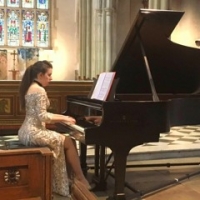
Ellie is a London-based composer, song-writer, lyricist, orchestrator and arranger; currently studying at Guildhall School of Music & Drama.
Iannis Xenakis
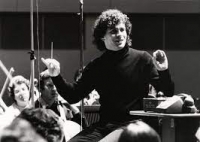
Iannis Xenakis was a Greek-French composer, music theorist, architect, performance director and engineer. After 1947, he fled Greece, becoming a naturalized citizen of France eighteen years later.
Jerry Goldsmith
Jerrald King "Jerry" Goldsmith (February 10, 1929 – July 21, 2004) was an American composer and conductor.
He is considered as one of the most prominent and prolific film composers of the 20th century. Goldsmith worked in various film and television genres, but is commonly associated with action, science fiction, fantasy, and horror films. He was nominated for five Grammy Awards, nine Golden Globes, four BAFTAs and seventeen Academy Awards, but only received one Oscar for The Omen in 1976.
A list of his distinguished film scores, most of which were Oscar nominated, include Freud, A Patch of Blue, The Blue Max, The Sand Pebbles, Planet of the Apes, Patton, Escape from the Planet of the Apes, Papillon, Chinatown, The Wind and the Lion, The Omen, Logan's Run, Islands in the Stream (acknowledged by Goldsmith as his own personal favorite), The Boys from Brazil, Capricorn One, Alien, The First Great Train Robbery, Star Trek: The Motion Picture, Poltergeist, Twilight Zone: The Movie, Lionheart, The Russia House, First Blood, Rambo: First Blood Part II, Rambo III, Total Recall, Medicine Man, Basic Instinct, Hoosiers, The Edge, The 13th Warrior, The Mummy, and Rudy. Goldsmith's Oscar-nominated score for Under Fire (1983) prominently featured solo guitar work by Pat Metheny. Of all the scores he wrote, Goldsmith has said that Basic Instinct was the hardest and most complex, according to a mini-documentary on the special edition DVD.
He is considered as one of the most prominent and prolific film composers of the 20th century. Goldsmith worked in various film and television genres, but is commonly associated with action, science fiction, fantasy, and horror films. He was nominated for five Grammy Awards, nine Golden Globes, four BAFTAs and seventeen Academy Awards, but only received one Oscar for The Omen in 1976.
A list of his distinguished film scores, most of which were Oscar nominated, include Freud, A Patch of Blue, The Blue Max, The Sand Pebbles, Planet of the Apes, Patton, Escape from the Planet of the Apes, Papillon, Chinatown, The Wind and the Lion, The Omen, Logan's Run, Islands in the Stream (acknowledged by Goldsmith as his own personal favorite), The Boys from Brazil, Capricorn One, Alien, The First Great Train Robbery, Star Trek: The Motion Picture, Poltergeist, Twilight Zone: The Movie, Lionheart, The Russia House, First Blood, Rambo: First Blood Part II, Rambo III, Total Recall, Medicine Man, Basic Instinct, Hoosiers, The Edge, The 13th Warrior, The Mummy, and Rudy. Goldsmith's Oscar-nominated score for Under Fire (1983) prominently featured solo guitar work by Pat Metheny. Of all the scores he wrote, Goldsmith has said that Basic Instinct was the hardest and most complex, according to a mini-documentary on the special edition DVD.
George Frideric Handel
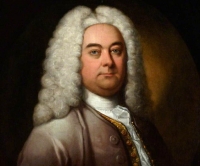
George Frideric (or Frederick) Handel (/ˈhændəl/; born Georg Friederich Händel (About this soundlisten); 23 February 1685 (O.S.) – 14 April 1759) was a German, later British, Baroque composer who spent the bulk of his career in London, becoming well known for his operas, oratorios, anthems, and organ concertos. Handel received important training in Halle and worked as a composer in Hamburg and Italy before settling in London in 1712; he became a naturalised British subject in 1727. He was strongly influenced both by the great composers of the Italian Baroque and by the middle-German polyphonic choral tradition.
Chopin

Frédéric Chopin (1 March 1810 – 17 October 1849) was a Polish composer and virtuoso pianist of the Romantic period. He is widely regarded as the greatest Polish composer, and ranks as one of music's greatest tone poets.
He was born in the village of Żelazowa Wola, in the Duchy of Warsaw, to a Polish mother and French-expatriate father, and in his early life was regarded as a child-prodigy pianist. In November 1830, at the age of 20, Chopin went abroad; following the suppression of the Polish November Uprising of 1830–31, he became one of many expatriates of the Polish "Great Emigration."
In Paris, he made a comfortable living as a composer and piano teacher, while giving few public performances. A Polish patriot,
Chopin's extant compositions were written primarily for the piano as a solo instrument. Though technically demanding, Chopin's style emphasizes nuance and expressive depth rather than virtuosity. Chopin invented musical forms such as the ballade and was responsible for major innovations in forms such as the piano sonata, waltz, nocturne, étude, impromptu and prelude. His works are mainstays of Romanticism in 19th-century classical music.
He was born in the village of Żelazowa Wola, in the Duchy of Warsaw, to a Polish mother and French-expatriate father, and in his early life was regarded as a child-prodigy pianist. In November 1830, at the age of 20, Chopin went abroad; following the suppression of the Polish November Uprising of 1830–31, he became one of many expatriates of the Polish "Great Emigration."
In Paris, he made a comfortable living as a composer and piano teacher, while giving few public performances. A Polish patriot,
Chopin's extant compositions were written primarily for the piano as a solo instrument. Though technically demanding, Chopin's style emphasizes nuance and expressive depth rather than virtuosity. Chopin invented musical forms such as the ballade and was responsible for major innovations in forms such as the piano sonata, waltz, nocturne, étude, impromptu and prelude. His works are mainstays of Romanticism in 19th-century classical music.
Viotti, Giovanni Battista
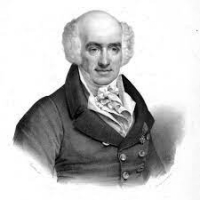
Giovanni Battista Viotti was an Italian violinist whose virtuosity was famed and whose work as a composer featured a prominent violin and an appealing lyrical tunefulness. He was also a director of French and Italian opera companies in Paris and London. He personally knew Joseph Haydn and Ludwig van Beethoven.
Yukiko Isomura
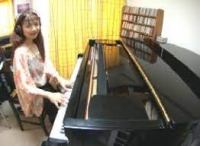
Yukiko Isomura Albümler: Pray for the Sea (Inspired by ‘The Outlaw Ocean’ a book by Ian Urbina) Crimson Waltz
Sunshine KOTORI CAFE · 2015 Siesta KOTORI CAFE · 2015 Sea, Wind, and Pray for the Sea (Inspired by ‘The Outlaw Ocean’ a book by Ian Urbina) · 2021.
Sunshine KOTORI CAFE · 2015 Siesta KOTORI CAFE · 2015 Sea, Wind, and Pray for the Sea (Inspired by ‘The Outlaw Ocean’ a book by Ian Urbina) · 2021.
Giovanni Pandolfi-Mealli
hilipp Nicolai (10 August 1556 – 26 October 1608) was a German Lutheran pastor, poet, and composer. He is most widely recognized as a hymnodist.Philipp Nicolai was born at Mengeringhausen in Waldeck, Hesse, Germany where his father was a Lutheran pastor. His early education include studies at Kassel in Hesse, Hildesheim in Lower Saxony and Dortmund in Westphalia. He studied theology at the University of Erfurt where he was a pupil of Ludwig Helmbold.
In 1583, he was ordained to the Lutheran ministry and was appointed minister at Herdecke. He was subsequently expelled during the Counter-Reformation. In 1588, he became pastor at Altwildungen in Hesse. He graduated with a Doctorate Degree in Theology from the University of Wittenberg in 1594. In 1596, he became the minister at Unna in Westphalia. In 1601, he was elected chief pastor of St. Katherine's Church (Katharinenkirche) in Hamburg.
In 1583, he was ordained to the Lutheran ministry and was appointed minister at Herdecke. He was subsequently expelled during the Counter-Reformation. In 1588, he became pastor at Altwildungen in Hesse. He graduated with a Doctorate Degree in Theology from the University of Wittenberg in 1594. In 1596, he became the minister at Unna in Westphalia. In 1601, he was elected chief pastor of St. Katherine's Church (Katharinenkirche) in Hamburg.
François-Joseph Gossec
François-Joseph Gossec was a French composer of operas, string quartets, symphonies, and choral works
He was born in 1734 as the son of a Belgian farmer and immigrated to France with his extraordinary musical talent.
Although it remains among the forgotten nowadays, its reputation spread beyond the French border. Not to mention that Mozart felt the need to visit him. has a wonderful requiem'i. dies irae reminiscent of a strange anthem and also especially angry confutatis ini mozart requiem lovers should certainly not listen to.
He was born in 1734 as the son of a Belgian farmer and immigrated to France with his extraordinary musical talent.
Although it remains among the forgotten nowadays, its reputation spread beyond the French border. Not to mention that Mozart felt the need to visit him. has a wonderful requiem'i. dies irae reminiscent of a strange anthem and also especially angry confutatis ini mozart requiem lovers should certainly not listen to.
U2

U2 are a rock band from Dublin, Ireland. The band consists of Bono (vocals and guitar), The Edge (guitar, keyboards, and vocals), Adam Clayton (bass guitar) and Larry Mullen, Jr. (drums and percussion).
The band formed in 1976 when the members were teenagers with limited musical proficiency. By the mid-1980s, however, the band had become a top international act, noted for their anthemic sound, Bono's impassioned vocals, and The Edge's textural guitar playing. Their success as a live act was greater than their success at selling records until their 1987 album The Joshua Tree increased the band's stature "from heroes to superstars," according to Rolling Stone. U2 responded to the dance and alternative rock revolutions, and their own sense of musical stagnation by reinventing themselves with their 1991 album Achtung Baby and the accompanying Zoo TV Tour. Similar experimentation continued for the rest of the 1990s. Since 2000, U2 have pursued a more traditional sound that retains the influence of their previous musical explorations.
U2 have sold more than 140 million albums worldwide and have won 22 Grammy Awards, more than any other band. In 2005, the band were inducted into the Rock and Roll Hall of Fame in their first year of eligibility. Rolling Stone magazine listed U2 at #22 in its list of the 100 greatest artists of all time. Throughout their career, as a band and as individuals, they have campaigned for human rights and social justice causes, including Amnesty International, the ONE Campaign, and Bono's DATA (Debt, AIDS, Trade in Africa) campaign.
The band formed in 1976 when the members were teenagers with limited musical proficiency. By the mid-1980s, however, the band had become a top international act, noted for their anthemic sound, Bono's impassioned vocals, and The Edge's textural guitar playing. Their success as a live act was greater than their success at selling records until their 1987 album The Joshua Tree increased the band's stature "from heroes to superstars," according to Rolling Stone. U2 responded to the dance and alternative rock revolutions, and their own sense of musical stagnation by reinventing themselves with their 1991 album Achtung Baby and the accompanying Zoo TV Tour. Similar experimentation continued for the rest of the 1990s. Since 2000, U2 have pursued a more traditional sound that retains the influence of their previous musical explorations.
U2 have sold more than 140 million albums worldwide and have won 22 Grammy Awards, more than any other band. In 2005, the band were inducted into the Rock and Roll Hall of Fame in their first year of eligibility. Rolling Stone magazine listed U2 at #22 in its list of the 100 greatest artists of all time. Throughout their career, as a band and as individuals, they have campaigned for human rights and social justice causes, including Amnesty International, the ONE Campaign, and Bono's DATA (Debt, AIDS, Trade in Africa) campaign.
Giovanni Battista Bassani
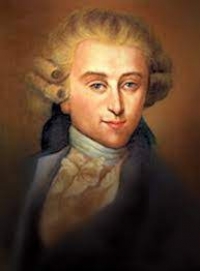
Giovanni Battista Bassani (c. 1650 – 1 October 1716) was an Italian composer, violinist, and organist Bassani was born in Padua. It is thought that he studied in Venice under Daniele Castrovillari and in Ferrara under Giovanni Legrenzi. Charles Burney and John Hawkins claimed he taught Arcangelo Corelli, but there is no solid evidence for this assertion. He was an organist at the Accademia della Morte in Ferrara from 1667, but had probably left by 1675. He published his first music in 1677; the title page calls him maestro of music at the Confraternità della Morte in Finale Emilia, not far from Modena. He was maestro di cappella at Duke Alessandro II della Mirandola's court in 1680, and was elected principe at the Accademica Filarmonica in Bologna. He became maestro di cappella at the Accademia della Morte in Ferrara in 1683, and then maestro di cappella at Ferrara Cathedral in 1686. For his contributions to the musical life of Ferrara, he was often called "Bassani of Ferrara". He wrote 76 liturgically ordered services for use at Ferrara Cathedral between 1710 and 1712. He became director of music at Santa Maria Maggiore in Bergamo in 1712, and also taught at the Congregazione di Carità in the same city until his death.
Ludwig van Beethoven

Ludwig van Beethoven (/ˈlʊdvɪɡ væn ˈbeɪt(h)oʊvən/ (About this soundlisten); German: (About this soundlisten); baptised 17 December 1770 – 26 March 1827) was a German composer and pianist. A crucial figure in the transition between the classical and romantic eras in classical music, he remains one of the most recognized and influential musicians of this period, and is considered to be one of the greatest composers of all time.
Beethoven was born in Bonn, the capital of the Electorate of Cologne, and part of the Holy Roman Empire. He displayed his musical talents at an early age and was vigorously taught by his father Johann van Beethoven, and was later taught by composer and conductor Christian Gottlob Neefe. At age 21, he moved to Vienna and studied composition with Joseph Haydn. Beethoven then gained a reputation as a virtuoso pianist, and was soon courted by Prince Lichnowsky for compositions, which resulted in Opus 1 in 1795.
Beethoven was born in Bonn, the capital of the Electorate of Cologne, and part of the Holy Roman Empire. He displayed his musical talents at an early age and was vigorously taught by his father Johann van Beethoven, and was later taught by composer and conductor Christian Gottlob Neefe. At age 21, he moved to Vienna and studied composition with Joseph Haydn. Beethoven then gained a reputation as a virtuoso pianist, and was soon courted by Prince Lichnowsky for compositions, which resulted in Opus 1 in 1795.
Shadow of the Colossus
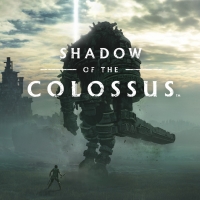
Shadow of the Colossus, released in Japan as Wander and the Colossus, is a 2005 action-adventure game developed by Japan Studio and Team Ico, and published by Sony Computer Entertainment for the PlayStation 2.
Ace of Base
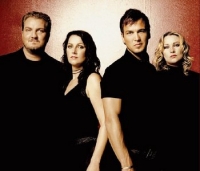
Ace of Base is a pop band from Gothenburg, Sweden, comprising Ulf Ekberg (Buddha) and siblings Jonas Berggren (Joker), Jenny Berggren (and, formerly, Malin "Linn" Berggren). They released their debut album in 1993 and went on to achieve major chart success throughout the 1990s, their most popular songs being "Beautiful Life", "The Sign", "Don't Turn Around" and "All That She Wants." The departure of former lead singer Linn Berggren was revealed in 2007 after years of declining participation in the group. The three remaining members are currently on a world tour and plan to release a new studio album later in 2008.
Henry Schradieck
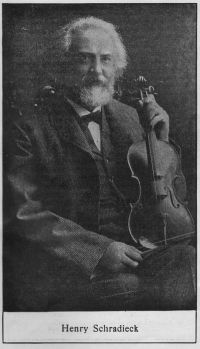
Henry Schradieck (29 April 1846 – 25 May 1918) was a German violinist, music pedagogue and composer. He was one of the foremost violin teachers of his day. He wrote a series of etude books for the violin which are still in common use todayBorn in Hamburg, he received his first violin lessons from his father, and made his first public appearance at the age of six. He studied under Hubert Léonard, at Royal Conservatory of Brussels, where he gained first prize. Afterwards he went to Leipzig, where he became a pupil of Ferdinand David. In 1863 he became a soloist at the Reinthaler concerts at Bremen. The following year he went to Moscow as Professor of the violin. In 1868 Schradieck returned to Hamburg, to take up the position of conductor of the Philharmonic Society, vacated by Leopold Auer. After six years he became concertmaster at the Gewandhaus Orchestra in Leipzig, professor at the Leipzig Conservatory, and leader of the theater orchestra.
Jerry Bock
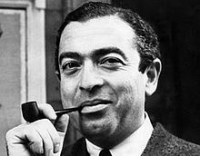
Jerrold Lewis "Jerry" Bock (November 23, 1928 – November 3, 2010) was an American musical theater composer. He received the Tony Award for Best Musical and the Pulitzer Prize for Drama with Sheldon Harnick for their 1959 musical Fiorello! and the Tony Award for Best Composer and Lyricist for the 1964 musical Fiddler on the Roof with Harnick.
Christian Heinrich Hohmann
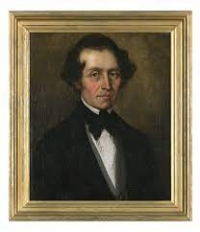
Christian Heinrich Hohmann (March 7, 1811 in Niederwerrn – May 12, 1861 in Schwabach) was a German composer, music educator and the author of Violin School.Hohmann was a son of farmer and tailor Georg Hohmann and Anna Hörlein. He worked as a teacher at a teacher training college Altdorf and Schwabach, and wrote several educational books including violin school, which is now known as "Hohmann-Heim" (ISMN M-700014-11-7). He also reissued the original (formerly of Universal Edition Vienna, now in the FIRMAMENT music publishing and music sales mbH, Berlin)..
Majid Vafadar
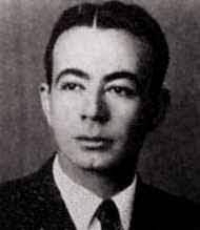
Majid Vafadar (1913 - 1979) was an Iranian violinist and composer. Sites: Wikipedia. Variations: All | مجید وفادار | Viewing Majid Vafadar.
Jeffrey Harrington
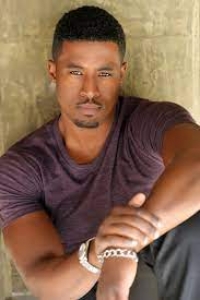
A noted microtonalist and electronic experimentalist, he was also one of the first musicians to adopt the Internet for music distribution and promoting,
Waldemar von Baußnern
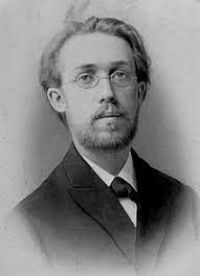
Born in Berlin, and descended from Transylvanian Saxons, Baußnern was the son of a financial official. He grew up in both Transylvania and Budapest in the Austro-Hungarian Empire (in present-day Romania and Hungary respectively). Between 1882–1886 he was a student of Friedrich Kiel and Woldemar Bargiel at the Berlin Musical Academy (Berliner Musikhochschule). He then conducted various choirs; after 1909 he became director of the Großherzoglichen Musikschule in Weimar. From 1916 to 1923 he served as director of the Hoch Conservatory in Frankfurt am Main. In 1923, he became undersecretary of the Academy of Arts, Berlin. He died in Potsdam.
Pablo de Sarasate

Pablo Martín Melitón de Sarasate y Navascués (10 March 1844 – 20 September 1908) was a Spanish violinist and composer of the Romantic period.
Mozart

Wolfgang Amadeus Mozart, full name Johann Chrysostom Wolfgang Amadeus Mozart (27 January 1756 â 5 December 1791) was a prolific and influential composer of the Classical era. His over 600 compositions include works widely acknowledged as pinnacles of symphonic, concertante, chamber, piano, operatic, and choral music. Mozart is among the most enduringly popular of classical composers, and many of his works are part of the standard concert repertoire.
Mozart's music, like Haydn's, stands as an archetypal example of the Classical style. His works spanned the period during which that style transformed from one exemplified by the style galant to one that began to incorporate some of the contrapuntal complexities of the late Baroque, complexities against which the galant style had been a reaction. Mozart's own stylistic development closely paralleled the development of the classical style as a whole. In addition, he was a versatile composer and wrote in almost every major genre, including symphony, opera, the solo concerto, chamber music including string quartet and string quintet, and the piano sonata. While none of these genres were new, the piano concerto was almost single-handedly developed and popularized by Mozart. He also wrote a great deal of religious music, including masses; and he composed many dances, divertimenti, serenades, and other forms of light entertainment.
The central traits of the classical style can be identified in Mozart's music. Clarity, balance, and transparency are hallmarks of his work.
Mozart's music, like Haydn's, stands as an archetypal example of the Classical style. His works spanned the period during which that style transformed from one exemplified by the style galant to one that began to incorporate some of the contrapuntal complexities of the late Baroque, complexities against which the galant style had been a reaction. Mozart's own stylistic development closely paralleled the development of the classical style as a whole. In addition, he was a versatile composer and wrote in almost every major genre, including symphony, opera, the solo concerto, chamber music including string quartet and string quintet, and the piano sonata. While none of these genres were new, the piano concerto was almost single-handedly developed and popularized by Mozart. He also wrote a great deal of religious music, including masses; and he composed many dances, divertimenti, serenades, and other forms of light entertainment.
The central traits of the classical style can be identified in Mozart's music. Clarity, balance, and transparency are hallmarks of his work.
Eduardo Di Capua
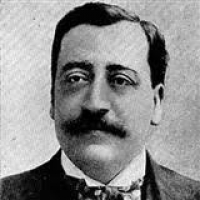
DescriptionEduardo Di Capua was a Neapolitan composer, singer and songwriter. Date of birth: March 12, 1865, Naples, Italy Date and place of death: 3 October 1917, Milan, Italy Education: Music conservatories of Naples Genre: Classical music Albums: O Sole Mio
Hillsong Worship

Hillsong Worship is an Australian Christian music praise & worship group from Sydney, Australia, where they started making music in 1983, at Hillsong Church. Twelve have charted on the Billboard magazine charts in the US
Suzuki method

The Suzuki method is a music curriculum and teaching philosophy dating from the mid-20th century, created by Japanese violinist and pedagogue Shinichi Suzuki (1898–1998). The method aims to create an environment for learning music which parallels the linguistic environment of acquiring a native language. Suzuki believed that this environment would also help to foster good moral character.
Vincenzo Albrici
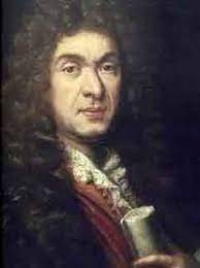
Vincenzo Albrici was an Italian composer, brother of Bartolomeo and nephew of Fabio and Alessandro Costantini. Albrici was born as the son of singer who settled from Marche in Rome. In 1641 he became a student at the Collegium Germanicum et Hungaricum under Giacomo Carissimi.
Kawai Kenji
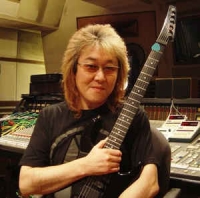
Kenji Kawai is a Japanese music composer and arranger. Known as one of the biggest names in the soundtrack world, he has worked on a wide range of mixed media productions, including anime, TV shows, films and video games.
Alexander Ilyinsky
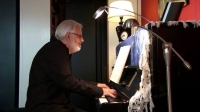
Alexander Alexandrovich Ilyinsky was a Russian music teacher and composer, best known for the Lullaby, Op. 13, No. 7, from his orchestral suite "Noure and Anitra", and for the opera The Fountain of Bakhchisaray set to Pushkin's poem of the same name. Alexander Ilyinsky was born in Tsarskoye Selo in 1859.
Rachel Thibodeau
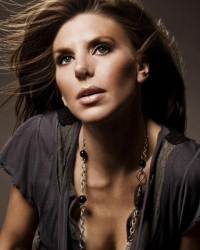
Rachel Thibodeau Musical artist Available on Deezer Born: Elk River, Minnesota, United States Songs Beautiful To Him
EFY 2006: The Greatest Gift · 2006 Love Land I'll Still Be Me.
EFY 2006: The Greatest Gift · 2006 Love Land I'll Still Be Me.
Christoph Willibald Gluck
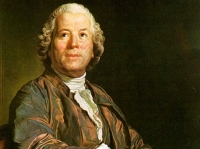
Christoph Willibald Gluck, German composer. Due to his family being a forester, he spent his childhood in various cities and towns. In 1727, he began to take his first music lessons in Komotau.
Friedrich Kreisler
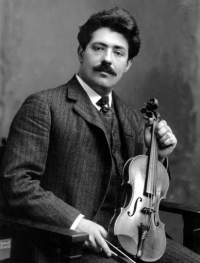
Friedrich "Fritz" Kreisler was an Austrian-born violinist and composer. One of the most noted violin masters of his day, and regarded as one of the greatest violinists of all time, he was known for his sweet tone and expressive phrasing
 Sheet Music Network is a site for those who wants to access popular sheet music easily,
letting them download the sheet music for free for trial purposes.
It's completely free to download and try the listed sheet music, but you have to delete the files after 24 hours of trial.
Don't forget, if you like the piece of music you have just learned playing,
treat the artist with respect, and go buy the original sheet music.
Sheet Music Network is a site for those who wants to access popular sheet music easily,
letting them download the sheet music for free for trial purposes.
It's completely free to download and try the listed sheet music, but you have to delete the files after 24 hours of trial.
Don't forget, if you like the piece of music you have just learned playing,
treat the artist with respect, and go buy the original sheet music.
